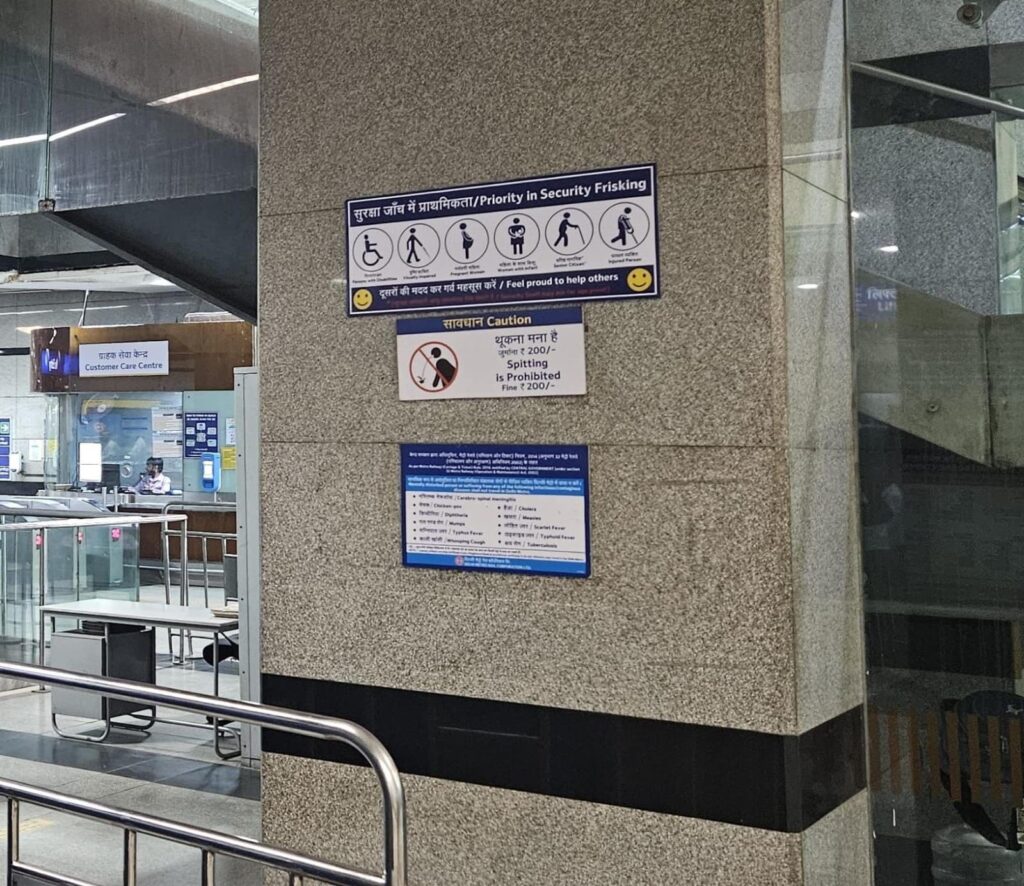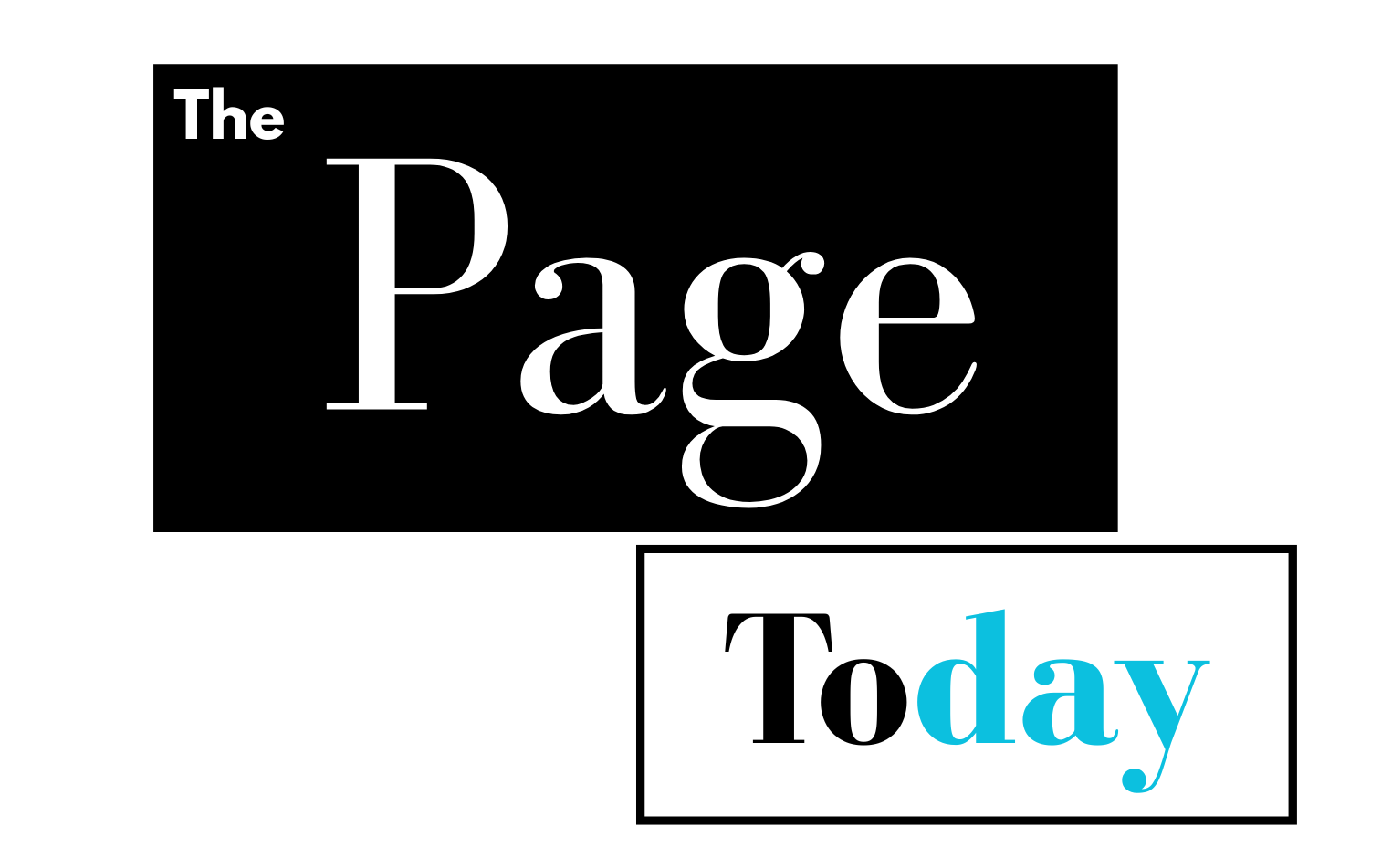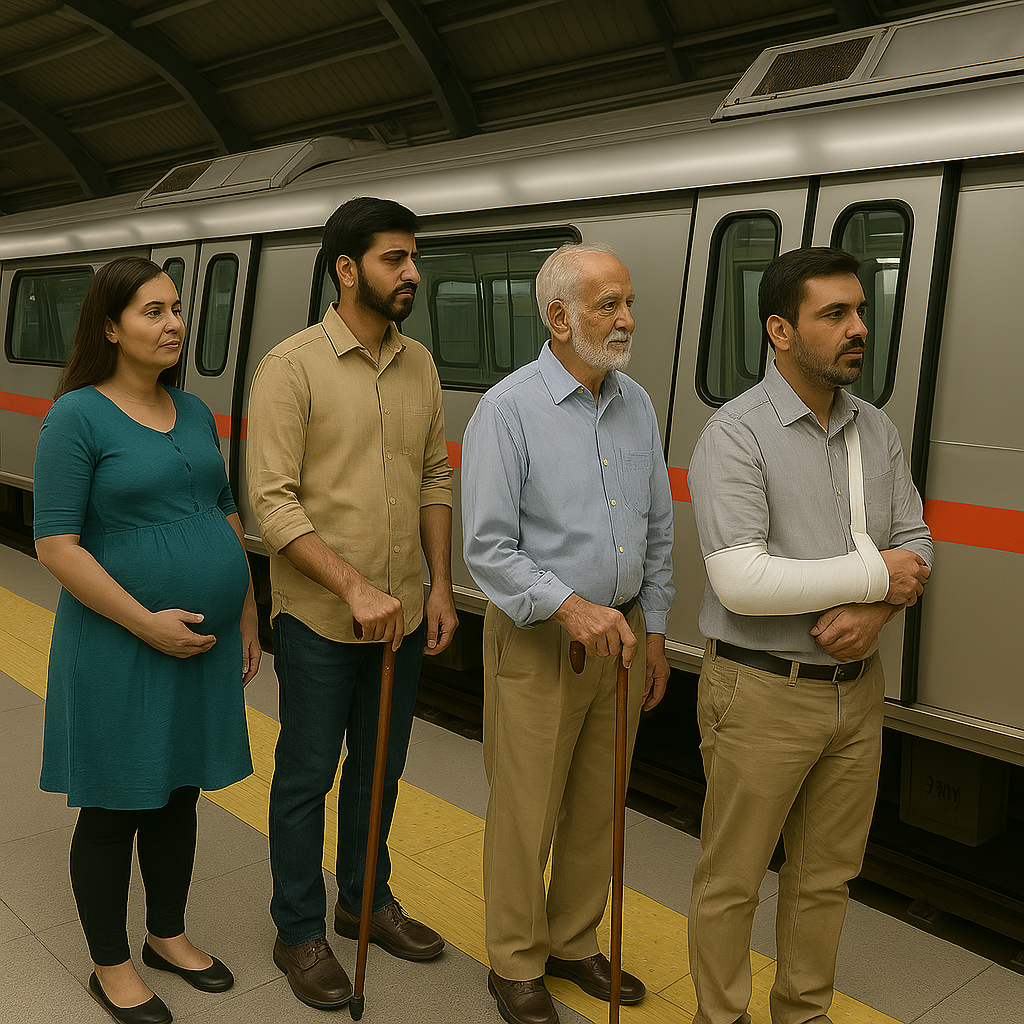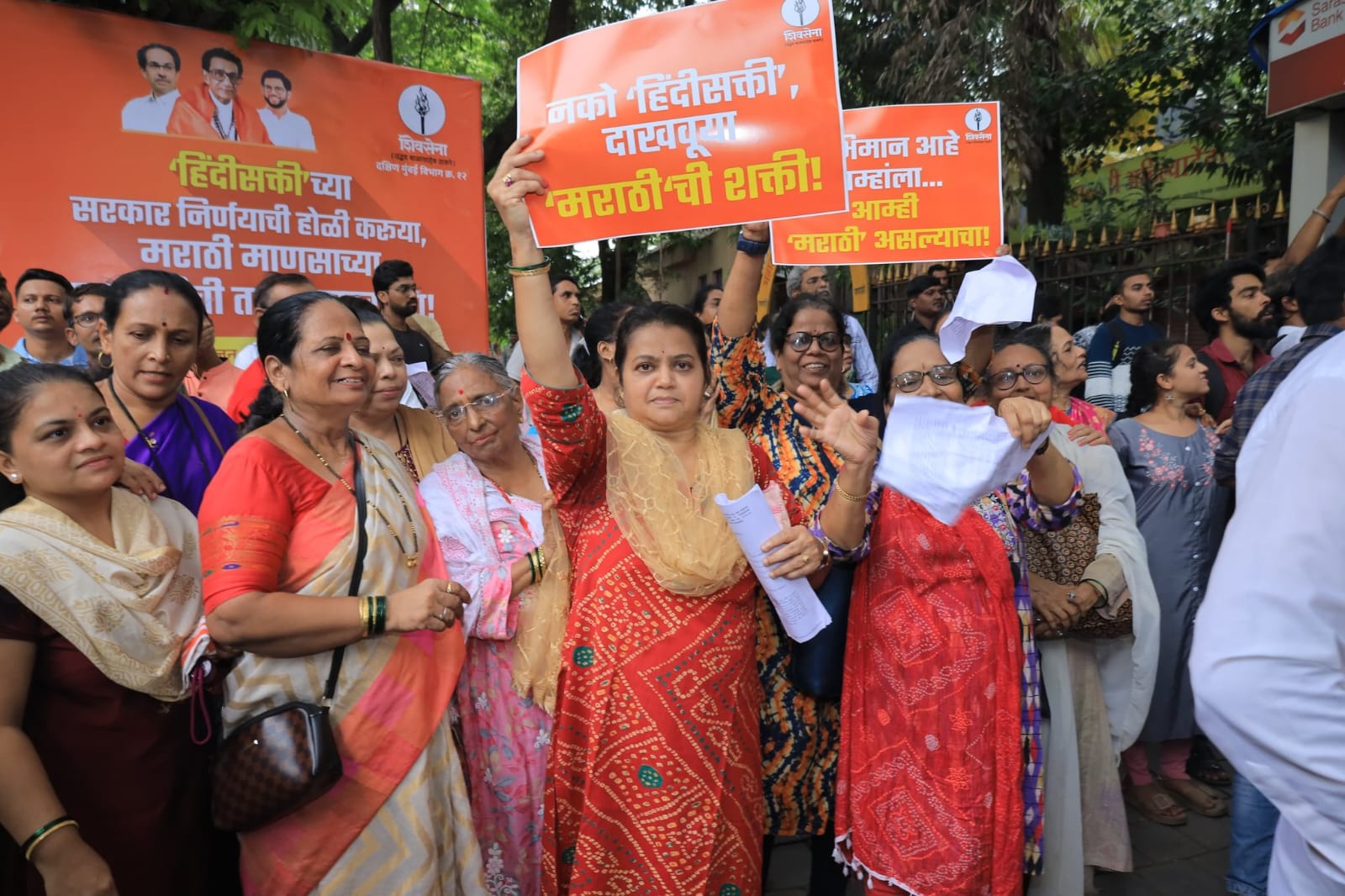June 1, 2025
New Delhi: In a significant move to enhance accessibility and inclusivity, the Delhi Metro Rail Corporation (DMRC) has launched a Priority Frisking initiative for special category passengers across all its stations. Announced on June 1, 2025, at 05:34 UTC via a post on X, this initiative targets divyangjans (persons with disabilities), pregnant women, women with infants, senior citizens, and injured persons, ensuring they experience a smoother and more empathetic journey through the bustling metro system. This step, undertaken in collaboration with the Central Industrial Security Force (CISF), underscores DMRC’s ongoing commitment to making public transportation in the national capital more commuter friendly.
The Priority Frisking initiative aims to address the unique challenges faced by special category passengers during security checks, a critical process in the Delhi Metro’s operations. With a sprawling network of 10 lines, 253 stations, and a track length of 347.66 km, the Delhi Metro serves over 2.6 million passengers daily, making it one of the busiest metro systems in the world. Security checks, while essential, can often be time-consuming and physically demanding, especially for those with mobility issues or specific needs.
Under the new initiative, these passengers are now given priority at security checkpoints, reducing wait times and minimizing discomfort. The DMRC has installed clear signage at stations, as seen in the images shared on X, with messages in Hindi and English such as “सुरक्षा जांच में प्राथमिकता / Priority in Security Frisking.”


The signs list the eligible categories—persons with disabilities, visually impaired individuals, pregnant women, women with infants, senior citizens, and injured persons—along with a friendly note: “Feel proud to help others.”
To ensure smooth implementation, the DMRC is working closely with the CISF, the agency responsible for metro security since 2007. Security personnel may request relevant documentation to verify eligibility in case of disputes, a measure designed to maintain fairness while prioritizing those in genuine need. This initiative is part of a broader effort to make the metro system more accessible, building on existing facilities like tactile paths, wheelchairs, and reserved seating for divyangjans and senior citizens.
Building on a Legacy of Accessibility
The Priority Frisking initiative is not the first of its kind for the DMRC. Earlier in 2025, the corporation introduced similar measures for CBSE Board exam students. From February 15 to April 4, 2025, students with admit cards were granted priority at security checkpoints and ticket counters, benefiting approximately 3.30 lakh students and thousands of school staff. This move was widely appreciated for reducing stress during the high-stakes exam period, ensuring students could focus on their performance rather than navigating crowded metro stations during peak hours.
The CISF, which has been providing security cover to the Delhi Metro since 2007, plays a pivotal role in this initiative. With a sanctioned strength of 12,528 personnel, the CISF Unit DMRC is the largest single-unit under the security force in the country. Currently, around 9,000 personnel are deployed, with 7,000 posted at stations and the rest assigned to internal security duties. The unit operates two centralized control rooms at Barakhamba Road and Shastri Park, equipped with CCTV cameras for real-time monitoring across the network. Periodic security mock drills are also conducted to ensure preparedness for emergencies, involving coordination with agencies like the Delhi Police, fire brigade, and medical services. However, the CISF faces challenges due to rising crime rates in the metro system, including pickpocketing and unauthorized activities.
The DMRC’s focus on security aligns with broader global discussions on safety in public transportation, particularly in developing countries. A study published on ScienceDirect, titled Safety and Security Improvement in Public Transportation Based on Public Perception in Developing Countries, emphasizes the heightened risks in public transport due to high passenger volumes. The study advocates for long-term action plans to advance safety practices, stressing the importance of coordinated efforts, resource availability, and fair information distribution among stakeholders.
Interestingly, not everyone agrees with the approach of frisking all passengers in public transport systems.
The Priority Frisking initiative is a testament to the DMRC’s forward-thinking approach to public transportation. By addressing the needs of vulnerable groups, the corporation not only enhances the travel experience but also sets an example for other metro systems across India. The Delhi Metro, often hailed as a world-class metro, continues to innovate with measures that prioritize safety, accessibility, and inclusivity.
As the DMRC moves forward, the success of this initiative will depend on effective implementation, adequate resources, and public cooperation. While challenges like manpower shortages and differing views on security measures persist, the corporation’s commitment to social responsibility remains unwavering. For the millions of passengers who rely on the Delhi Metro daily, initiatives like Priority Frisking are a step toward a more empathetic and inclusive urban mobility experience.



